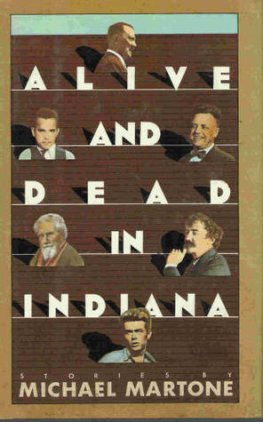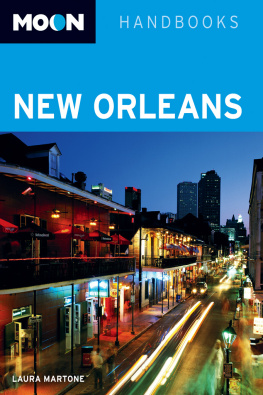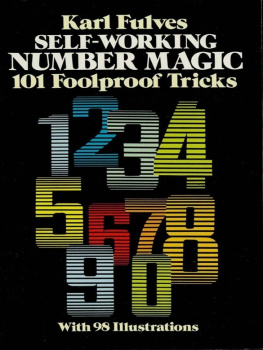Michael Martone
Four for a Quarter: Fictions

REHOBOTH
The photo booth is just inside off the boardwalk, away from the crowds. The backs of the white benches swing over the seats. You can sit facing the ocean or sit facing the storefronts. Out on the white cluttered beach, two Amish couples wade in the sheeting waves. Their shoes and socks chest high. Skirts tucked between bare legs. Their blue brilliant against the white sand and sky. Four of them. Two men and two women. They have come a long way. Everyone else pretends, I pretend, we are not looking. They toss bread to the cloud of gulls.
THE CHILDREN'S MUSEUM
It is educational. The photo booth is made of clear glass panels so that the lenses and the machinery that develops the photographic strips can be seen. I twirl the piano stool inside to the right height. I imagine that they have replaced the camera too with one that takes X-rays, and my souvenir will record a transparent me. My heart will be an opaque dollop in the airy cage of my ribs. I watch the coin I drop travel through the machine, and the ghostly parts begin to ratchet and twitch. Outside a small crowd has gathered to watch.
PENN STATION
More than the confession, I remember learning about confession. Behind the heavy curtains of the booths, on a little table next to the priest's chair were paper and pencil. I thought they were there to help the priest remember. Yes, he will note the cardinal sins and the venial ones, add up the penance in long columns of numbers. I saw my sins would be written in a ribbony hand, hauled into the air by fluttering cardinals. The words, unknotting as they flew up, trailed from the beaks of the birds, leaving me as white and clean as new paper.
WOOLWORTH'S
I part the curtains of the photo booth, get out, and wait. Women clerks in pastel smocks (one aqua, one pink, one mint, one yellow) point up. The store's parakeets and canaries are loose. The birds flit between perches of sale banners hanging from the stained ceiling tile. I am the same person now as when I went into the booth. I am the same in each of the four black-and-white pictures of me. I blow on the wet strip. I try to count the birds now roosting on the suspended fluorescent light fixtures at the very back of the store.
1.
You flowed and flowed. You stood in the bathtub, the blood sheeting your legs. I called the doctor, who said to bring you in and who later said there were probably always this many miscarriages. He was speaking of the general population, not you. Back then, he said, they were mistaken for menstrual bleeding. These days new tests let us know sooner. We call this diagnostic drift, he said, a condition always present but unseen. Until now. Now we know what we are seeing sooner. Now we know sooner what we are seeing. You had held your dress up away from the blood, and I had daubed at your bleeding with a wet washcloth. You hadn't known you were pregnant until you weren't. A classic case, the doctor said. Should we worry? I asked. Should this have happened? It is diagnostic drift, the doctor said. A few years ago you wouldn't even know what happened happened. This happens all the time. We won't even need to notice until the third time it happens, if it even happens again at all.
2.
There, there, another doctor said. It happens all the time. This time, you had known earlier you were pregnant and had been pregnant longer. You'd seen a sign, you said, the day it happened. An English sparrow chick dead on the sidewalk you walked on the way home. This time, in the bathtub, the blood was thicker and there was tissue in the pile of the washcloth. The doctor asked us to bring it with us to the emergency room. There, there, she said. It is difficult, the doctor said. She held your hand. This happens all the time. There is no way of knowing. We know more now, she said, but we don't know everything. We'll keep an eye on it, she said, riffling through the sheets of paper. You looked off into the distance. At a distance, I looked at you, your hair fanned out on the white paper sheet.
3.
It is more common than you might think, this doctor said to me. You were getting dressed behind the curtain. You had started bleeding during a prenatal visit. Things had been going well this time. Your doctor called me at work. He wanted me to drive you to the hospital, didn't want you to drive yourself. She's lost some blood, he said. She's a bit light-headed, he said to me on the phone. I drove through the streets of a new city. We had just moved. All the streets looked the same three-flats and Cyclone-fenced front yards. It was the doctor at the hospital who said that this was more common than you'd think. While you were there, I walked around the blocks of hospital buildings. I walked around three times. I told the doctor about the other times, about the doctor who had told us of diagnostic drift and that now we should be paying attention. Let's just wait and see, she said. These things happen. I asked her how long we should wait before we tried again, and she thought, for some reason, I meant exercise instead of sex. As soon as possible, she said. The sooner the better. But then when she understood what I meant she said, oh that. I watched your shadow move on the white cloth screen. Give it a few days, weeks, a month or so, maybe. Talk with your doctor.
4.
There is no blood. There's nothing to be done. There is your heartbeat but the other one is gone. The doctor has his nurse make the arrangements at a clinic for the D&C. We know the city better now. The main roads empty into rotaries I must circle, working my way around to the new road I need to take. I drop you off at the clinic. There is no place to park, so I idle at the front gate. You're escorted in through the picket of a few silent protesters. I drive around the city, lazily circling the rotaries a few times, and then cruise along the highway next to the widening river where eights and fours skate back and forth on the smooth surface, disappearing in the shadows beneath the old bridges. I know we know more now than we did, but it is hard to say. I know right now you are being questioned. An aide is asking questions and writing your answers onto forms she keeps in a file. Your history is being worked up. This happened and this happened and this happened and then this.
HAIBUN BY YOKO ONO
STUART SUTCLIFFE
a cicada shell it sang itself utterly away
Basho
Stuart's fingers blistered during the long rehearsals. He never played long enough for his fingers to callus. The group often used his flat to rehearse.

Pete's mum owned The Casbah Coffee Club. One night, John and McCartney persuaded Stuart to buy, on time, a Hfner bass guitar. Bad skin and pimples, McCartney said of him much later. Stuart had the skin of an art student.

In Germany, he wears dark Ray-Ban clip-on flip-up sunglasses like baseball players wear. He sings Love Me Tender. Stuart's hair was the first hair hair. He asked Astrid to cut his hair to look like Klaus's. She cut his greased-back, teddy-boy hair into a mop. And, after that, everyone's hair was cut that way.

December, George is sent back to England, underage. McCartney and Pete attempt arson at the Bambi Kino, are also deported. John takes a train, ferries home. Stuart stays in Hamburg. He has a cold. He meets Astrid, and eight months later he leaves The Beatles. He wants to paint. He wants something else.














